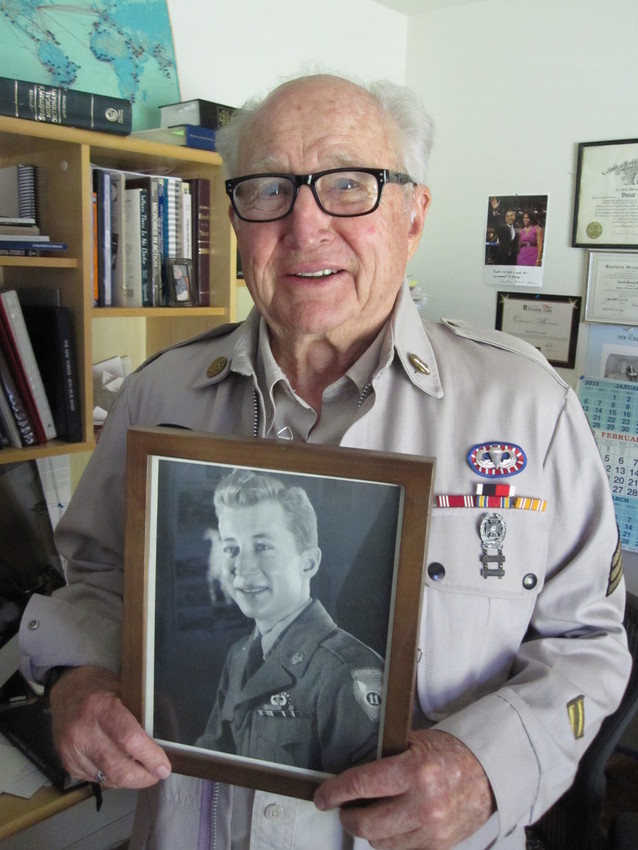He had an urgent, almost desperate, need to find out what happened to the kids he saw on television.
That incident led him to Grass Valley psychologist Page Brown, who works with veterans. She said PTSD symptoms are very often triggered by scenes of war, violence or devastation.
Foster was diagnosed with PTSD about two years ago. He said he didn’t expect to learn that his symptoms were related to his military experience. Brown said that’s not an unusual reaction of older vets.
“It’s more common than not that they’re surprised that there’s a relationship,” Brown said. “They think they’re fine, and that the rest of the world is stupid.”
PTSD symptoms in older vets can also be triggered by life changes, like the loss of a spouse or retirement, Brown said.
Another one of her patients, Dan Renfro, served with the Marines in Vietnam between 1965 and 1967. Unlike Foster, he did see combat. Lots of it.
“I was shot down in three different disabled helicopters,” Renfro said. “The last was the worst. It took a couple days to get out.”
His transition to civilian life was a long slide into misery: divorce, drinking and the inability to hold a job.
He often gets bored, or fired, not uncommon symptoms for people with PTSD. Renfro said he has had 45 jobs since he got out of the Marines.
Renfro eventually remarried, quit drinking and managed to bring a semblance of order to his life. But in 1993, a horrible tragedy sent him into a downward spiral. His 19-year-old stepson was murdered, shot in the head after leaving a party near Sacramento.
“The anger’s still there. It’s right here, all the time,” he said.
A few years ago, Renfro was diagnosed with PTSD and began getting help.
“PTSD sounds a lot better than idiot or A-hole,” Renfro said of his diagnosis.
Renfro is hardly alone. At the VA office in San Francisco, social worker Keith Armstrong heads up the PTSD program. His clients are mostly Vietnam-era vets now, but he has a few from World War II.
No matter how old the veteran is, a PTSD diagnosis can help bring new insights into mental health problems, Armstrong said.
“The pieces get put together in your mind about how to understand all of these erratic behaviors,” Armstrong said. “You find yourself irritable, you may be sleeping badly or that you get startled at loud noises, whether they be dump trucks or whatever — that I think for a number of people there’s relief.”
Fran, Foster’s wife of 64 years, said she agrees that a PTSD diagnosis is definitely better late than never.
“I and other family members would get really exasperated because you think, ‘Well, just control yourself, you know? What are you mad about?’” she said. “When you understand it probably wasn’t at all easy, that would explain it.”
Today, the VA is much more focused on PTSD, but the agency is overwhelmed with all the returning vets affected by it.
Still, there’s hope that treating veterans’ symptoms before decades have passed will help mitigate the kind of suffering in silence that many veterans of earlier wars endured.

